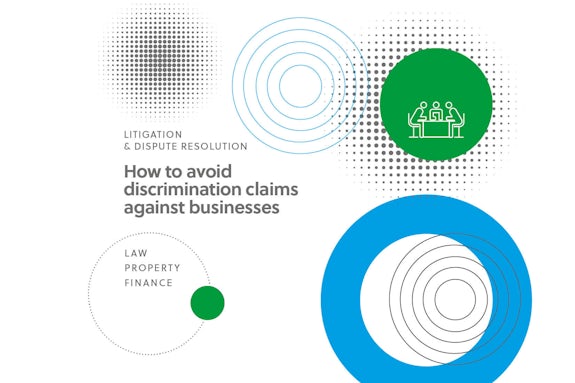There has been considerable publicity surrounding the allegations of discrimination made by Humza Yousaf and Nadia El-Nakla against Little Scholars Day Nursery. For those who have not followed the story, it is alleged by Humza Yousaf, the Scottish Government Cabinet Secretary for Health and Social Care, and his wife, Nadia El-Nakla that Little Scholars refused nursery places to children, including their daughter, who had Muslim-sounding names while offering places to other children with western-sounding names. This, it is claimed, amounted to discrimination on the basis of race and/or religion. The allegations are denied by Little Scholars and it will ultimately be for the court to decide the outcome of that dispute. The case, however, acts as a reminder of the importance for all businesses of ensuring compliance with the Equality Act 2010 and of being able to demonstrate compliance if challenged. As the Humza Yousaf / Nadia El-Nakla case shows, the consequences of an allegation of discrimination can extend well beyond an unwelcome litigation and can potentially have serious reputational consequences for a business.
The Equality Act 2010 prohibits discrimination, harassment and victimisation on the basis of certain protected characteristics. These protected characteristics are age, disability, gender reassignment, marriage and civil partnership, pregnancy and maternity, race, religion or belief, sex and sexual orientation. The Act prohibits both direct and indirect discrimination on the basis of these characterisations. Direct discrimination means treating a person less favourably because of a protected characteristic. Examples of direct discrimination would include not serving someone in a café because they are disabled or not letting a holiday house to someone because they are gay. In the Humza Yousaf case it is alleged that some children were not offered a nursery place because they were, or sounded, Muslim. To bring a discrimination claim there must be someone without the protected characteristic who has been treated more favourably. So in our examples, a non-disabled person must have been served in the café at the same time, a straight person offered the holiday house or a non-Muslim or non-Muslim sounding child offered a nursery place.
By contrast, indirect discrimination occurs when an organisation applies a policy equally to everybody but where the policy operates to disadvantage those who share a protected characteristic. Examples of this might include a nightclub which bans customers with hairstyles such as dreadlocks. On the face of it the policy applies equally to everyone but it probably disproportionately effects people of certain racial groups so may be indirectly discriminatory.
Businesses and service providers can inadvertently fall foul of discrimination laws in many ways. In the case of indirect discrimination, there could be well-intentioned reasons for a policy decision to be taken. Indeed sometimes indirect discrimination may actually be legal, if it is an appropriate, necessary and proportionate means of achieving a legitimate aim. If it cannot be so justified, however, it will not be legal. Where a business does wrongly discriminate, it can face a court action for damages in the sheriff court. The legal fees and management time involved in defending such an action can be considerable and the reputational damage to the business potentially worse.
How can such problems be avoided? There a number of good starting points. Businesses, especially those providing services to the public, should ensure that they are familiar with the Equality Act 2010 as well as the Codes of Practice and Guidance published by the Equality and Human Rights Commission. Businesses should provide appropriate training on the topic for staff. They should ensure that they have a clear policy in relation to equality and diversity and that these policies are communicated and promoted to employees. A review should also be undertaken of all policies already in place to ensure that they do not put those with a protected characteristic at a disadvantage, unless the policy can be justified as a proportionate means of achieving a legitimate aim. The equality policy should be incorporated into business strategies to demonstrate that the business is committed to upholding it. All of this should be documented and records kept.
Despite the best of preparations, discrimination claims can still arise; sometimes valid, sometimes not. Genuine mistakes should be learnt from while careful thought should be given as to how to respond to disputed allegations in light of the potential financial and reputational consequences. In such cases, early legal advice from experienced litigation lawyers is important.
If you would like further information on the topic discussed in this blog, please contact either Rosie Walker by email rwalker@gilsongray.co.uk or by phone: 0131 516 5374 / 07841 921 684 or Laura Brennan by email: lbrennan@gilsongray.co.uk or by phone: 0131 285 7852 / 07940 364 165.
The information and opinions contained in this blog are for information only. They are not intended to constitute advice and should not be relied upon or considered as a replacement for advice. Before acting on any of the information contained in this blog, please seek specific advice from Gilson Gray.








